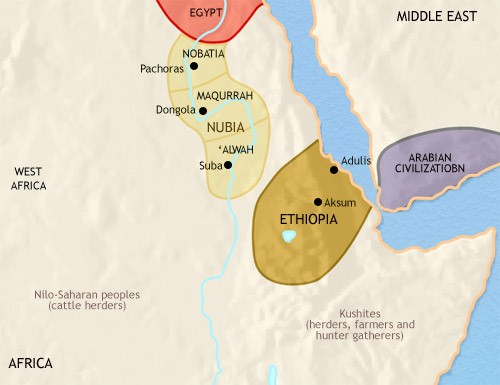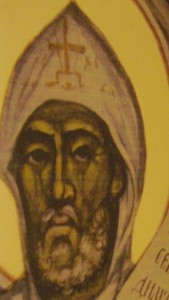It never fails to amaze me how many conscious and woke brothers and sisters overlook African Christian Saints. It isn’t hard to find memes about the glories of the golden eras of Pharaonic Egypt on social media. Many African-Americans have had an affinity for various branches of Islam. There is a growing Hebrew Israelite identity among some younger generations and even more declaring themselves to be “spiritual, but not religious.” It’s as if no one wants to look at the slightest possibility that there may have been an indigenous African expression of the Christian faith.

One only needs to look at the Bible and find a foundation of early African Christianity and sainthood. Simon of Cyrene, later known as Simeon called Niger carried our Lord’s cross for the crucifixion and was one of the first clergymen among the first group of people called Christians. It wasn’t as if he was a lone oddity. Others from that part of what is now eastern Libya joined with Greeks to hear from the Palestinian believers about Christ as they all converged on the city of Antioch. They were not the only Africans who embraced this new faith as there were men from all over the known world in Jerusalem to hear Peter’s Pentecostal sermon. Egyptians and Cyreneans are mentioned by name. In all likelihood, there were Carthaginians, Nubians, and other Africans represented as well.
Among some of the best known stories of early Christian martyrs we find Perpetua and Felicity, Cyprian of Carthage, The Scillitan Martyrs, and Maurice and his Theban Legion. In each case, these Africans were killed by Romans because they refused to deny Jesus. So, apparently, the faith was not forced upon them. When Constantine ended the persecution of Christians, the Egyptian Desert Fathers (which included Africans, West Asians, and Europeans) became the “voice crying out in the wilderness” reminding the Church to be prayerful and repentant as there was a much greater kingdom to aim for. The Nubian kingdoms held on to the Christian faith against Muslim Arab invaders almost as long as the Byzantine Empire. Ethiopia remained an isolated island of the faith until the Communist coup in the 1970’s. The history and spirituality of indigenous African Christianity is long and deep and is a part of the universal Orthodox world that came to the continent through unarmed evangelism and not force of arms.

My Saints of Africa series in 2021 and Dispatch from the Desert in 2020 list numerous (but still not all) of the holy men and women of early Christianity in Africa. I hope you feel motivated enough to purchase a copy of my book, Become All Flame: Lent with African Saints. Above all, let’s take the time to share these stories in person with family and friends and social media. Take note of feast days of a few favorite saints and prepare special meals in their honor, similar to a Serbian Slava. Honor them alongside our holidays such as MLK, Jr. Day which falls very close to the feast of the Desert Fathers Anthony and Macarius. Favorite scripture readings and special prayers can also be offered. As well, we should read from the stories of their lives and recorded wisdom. Volume One of the Philokalia has an extensive teaching from St. Moses the Black and the Sayings of the Desert Fathers is a treasure trove of ancient Christian wisdom from our motherland.

Of course we shouldn’t ignore the more well known saints the Orthodox Christian world. But as African-Americans, we ought not wait for others to tell our spiritual ancestor’s stories. Let’s embrace them and the Church as a whole.

Reblogged this on A Beach Keeper's Journal.
Bro John, this latest installment is absolutely fantastic! Sorry for the gushing compliment but it’s because the article is full of thoughtful insight and useful information. The religious public as well as the blog-o-verse readers need your input and voice. Axios!